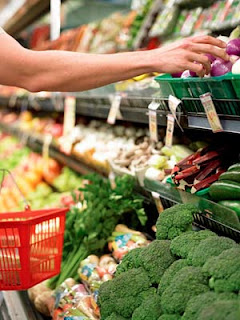If it grows from the ground, you should probably be able to eat it without worrying too much. At least that’s what I’ve always believed. And now (hallelujah!) Weight Watchers agrees with me! Cue the angel chorus…
In a move that has generated a ton of buzz in the healthy eating community, Weight Watchers has modified their incredibly popular Points program to make fruit a “zero Point” food. As background, (most) vegetables have been “zero Point” since the Points program was introduced in 1997; this encourages Points-counting Weight Watchers devotees to eat lots and lots of vegetables, which helps them fill up with low-calorie, nutrient-dense food. Unlike vegetables, fruit has always been assigned Points based on WW’s proprietary calorie-fiber-fat based algorithm. A banana, for example, was 2 Points. No longer.
So why the change? Well, under the old system, that banana had the same Points value as two Oreos, which finally started to trouble the powers-that-be at Weight Watchers. They’d always ascribed to the belief that a calorie is a calorie is a calorie. And of course on some level, that’s true. But the nutrient value is so radically different between a banana and an Oreo that it no longer felt quite right to equalize them for their members.
So under the new Points-Plus system, members can eat as MANY fruits and as MANY vegetables as they choose. Anytime, anywhere. This is brilliant. All the data suggests that our nation is radically undereating vegetables and fruits in favor of processed foods. Beyond that, diets like Atkins which recommend high-protein, low-carb eating have demonized higher-sugar fruits like pineapple or vegetables like carrots to the point where people are afraid to eat them! Unless you’re battling diabetes, that’s simply throwing the baby out with the bath water.
Vegetables and fruits are low-calorie, nutrient-dense, and full of fiber. All of us should be striving to get as many servings a day as we can, seeking variety seasonally
In the words of a compelling voice of reason (that of author, Michael Pollan, in his book Food Rules):
Eat (real) food. Not too much. Mostly plants.
Amen and hallelujah.


